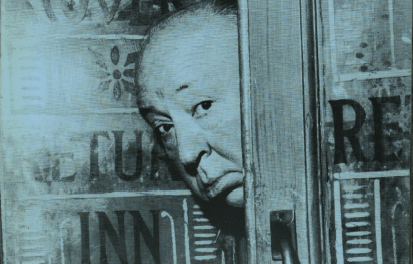The pandemic meant that for a year the usual summer exodus to foreign holiday destinations has been banned, and holidays in the UK were also unlawful until recently. It was all rather reminiscent of the Holiday at Home campaign of the 1940s, prompted by the need to reduce travel, save resources and close some seaside resorts because of fears of invasion. Indeed, the phrase Holidays at Home came back into circulation during Covid-19, but with a degree of uncertainty this summer about whether it means stay in your house but do recreational things there or make plans to holiday within the UK at an Air B&B, campsite or with a relative, for example.
On television there are whole genres of programmes about holidays, including consumer advice shows about where to go and what to do, and a few dramas about people on holiday, most prominently Benidorm (2007-18), for example. This blog spotlights just one, Duty Free, which was a Holiday at Home in the sense that although set abroad, it was entirely shot in Leeds, in a TV studio with actors sweating under the overhead lights rather than the Mediterranean sun. Duty Free was an ITV sitcom made by Yorkshire Television about two married couples in their 40s on an off-peak Spanish holiday. The aspirational David (Keith Barron) and his wife Amy (Gwen Taylor) are from Yorkshire and have come to Spain on David’s redundancy money after he loses his job, while the posher Linda (Joanna Van Gyseghem) and Robert (Neil Stacy) are from Henley on Thames. The comedy centres on the hesitant attraction between David and Linda and their secret romantic meetings, and the couples’ class differences.
In the title sequence, a charter airliner flies away from the camera over light, upbeat music, and the title, “Duty Free” is superimposed in the form of a rubber stamp like those on products available at the airport. Holidays give greater licence for pleasurable consumption and also for the transgression of social customs, as we see next. The sequence cuts to David, standing on the balcony of his room at the Spanish hotel, as he drops a rose intended for Amy into the courtyard below. But the rose falls into the hands of Linda instead as the music modulates into flamenco, signifying not only the setting but also passion and romance.
In my favourite episode, “Close Up” (series 3, episode 3, 1986), in the first shot David announces from his balcony that “It’s the Wish You Were Here team!” and Amy emerges to look while the camera follows her gaze down to the courtyard. Judith Chalmers, host of Yorkshire TV’s weekly Wish You Were Here (1974-2003) holiday consumer affairs and travel advice show is moving through the crowd (Fig. 1). The episode is all about performance and adopting social roles, as television prompts the characters to perform for Chalmers’ camera and express both their desires and their failings, exaggerating further the way that being on holiday encourages excess.
Because the series was filmed wholly in a studio, Spain is already a performance, an artifice. But in this episode, the reality established as the baseline of the show is contrasted with the self-conscious performances of Duty Free’s couples as they try to make the best impression on the camera of Wish You Were Here. The real holiday show is simulated within Duty Free and marked by a frame-within-a-frame whenever we see Chalmers’ programme. When the cameras of Wish You Were Here are turned on the characters of Duty Free, a deeper reality about the couples is hilariously revealed.
The episode imagines what it means to be on television, which entails making private life public and getting the chance to perform an identity. For example, Chalmers invites the couples to talk about their holiday (Fig. 2) and David instructs Amy to say nothing but “Yes, I agree” because of her embarrassing northern accent. Linda tries to discipline how Robert will appear on camera, saying “Don’t finger your moustache, it makes you look furtive”. Whenever the episode shows us Wish You Were Here being shot, the characters of Duty Free try to insinuate themselves into the frame. We often see Chalmers’ pieces to camera twice, so that we focus less on what she is saying than on the background action featuring the antics of the characters of Duty Free, getting in the way and causing a retake to be needed.
When the Wish You Were Here crew arrives to describe the beach, Chalmers is interrupted by Robert walking across the shot towards a tent, where he is about to discover David in a tryst with Linda. Linda’s hasty escape from the tent interrupts Chalmers’ report. In the penultimate scene Linda sits on the terrace, her face invisible behind an issue of Majesty magazine with Princess Diana on the cover. When Robert enters she reveals her face all blotched by sun cream, contrasting with the idealised image of Diana and symbolically punishing her for her earlier acting-up to the cameras. Luckily there are no cameras around, as she notes to Robert: “Well you don’t think I’d be looking like this if there were, do you?” Suddenly, from out of shot comes Chalmers’ voice, describing the terrace as “occupied mainly by pensioners”. Linda is framed in close-up by the camera of Wish You Were Here, exposed. Television ups the stakes around these issues of role-playing and appearance.
In the last scene David goes to meet Linda in the beach tent so David can apologise for Amy’s behaviour and blame her for showing them all up in front of the camera. But it is Amy and not Linda in the tent; they argue and it collapses. In a change of shot (Fig. 3), the collapsing tent becomes the background action in another piece to camera by Chalmers and the camera turns to focus on the struggling heap.
Holiday programmes, synecdochically represented by Chalmers and Wish You Were Here, embody the social codes of British society. Here those conventions pursue the sitcom characters abroad and they cannot escape them. As in so many sitcoms, entrapment and the frustrations of social rules combine with the possibility of freedom and self-expression that blossom momentarily before being undercut. Lovely as it would be to get away on holiday, television reminds you that you can never escape from yourself.
Jonathan Bignell is Professor of Television and Film at the University of Reading. He remembers watching this episode of Duty Free in Brighton in 1986 and taping it on a rented top-loading VHS recorder (as a humble PhD student he couldn’t afford to buy one). Jonathan works on histories of television drama, cinema and children’s media. Some of his work is available free online from his university web page or from his academia.edu page.








